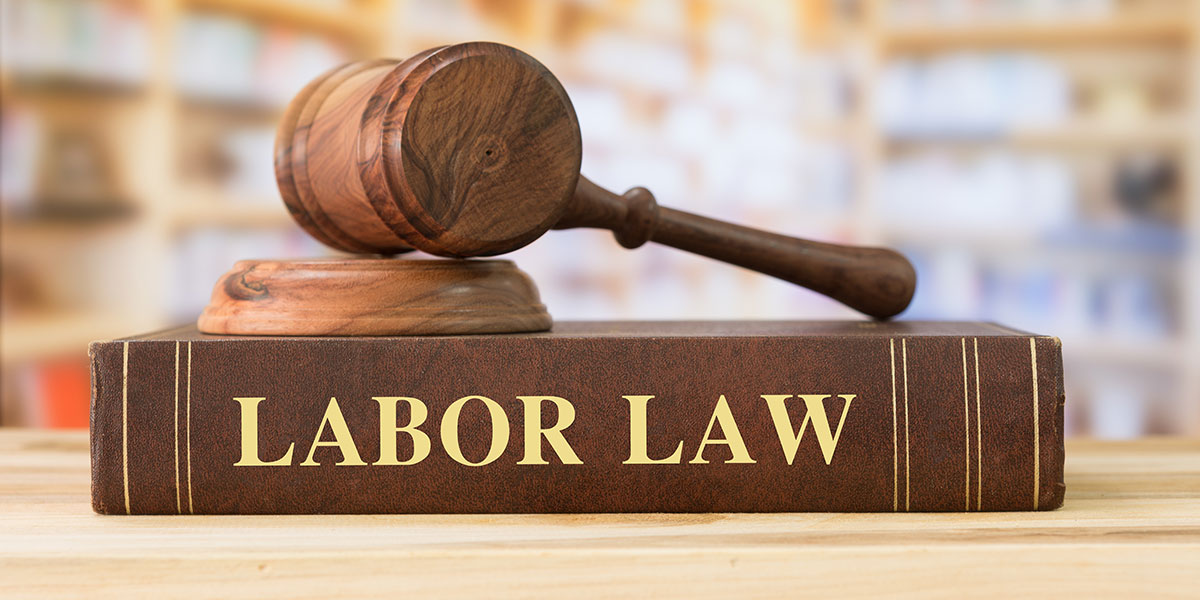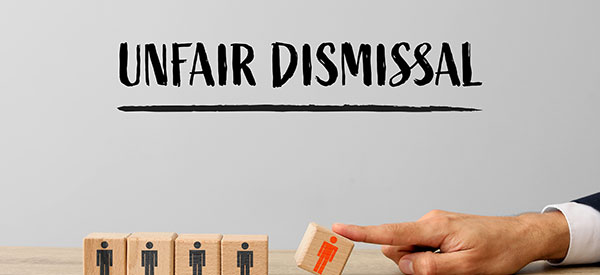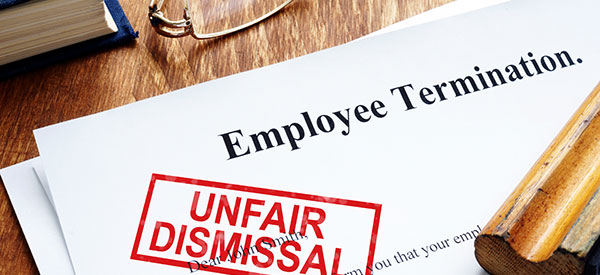Were you rewarded for your loyal and faithful service of many years by being shown the door by your company? Has your employer fired you in a way that infringed on your rights or discriminated against you?
You don’t have to leave the building with your empty cardboard box. The law provides rights for all employees in the province in terms of unlawful dismissal and a labor lawyer will be happy to help you throughout this process!

A lawyer can even help you if you have suffered an injury or an occupational injury at your workplace! Appeals to the CNESST require a particular legal specialization and Compare Lawyers will be on a mission to find the best expert in Quebec for you!
Your rights as an employee and how a labor lawyer can help you
The workplace is an environment that is governed not only by the Civil Code of Quebec, but also by many specific laws including the Act respecting labor standards. It is the latter that offers the most protection to Quebec employees against abusive actions by an employer, including illegal dismissal.
For information, the Act respecting labor standards constitutes the minimum threshold in terms of working conditions that an employer is obliged to respect. This is the scale below which no employer can drop in terms of minimum wages, overtime, vacation, parental leave and other benefits that every worker is entitled to.
This same law also sets out your obligations as an employee which you must respect. We are thinking, in particular, of loyalty, your duty to respect the directives of your superiors, to perform your work in the safest way possible, and to provide the work yourself.
What justifies the expertise of the lawyer in labor law is his ability to detect the actions of employers who try to violate your rights!
There are remedies in the law to obtain compensation for unjustified dismissal and it is up to you to seek compensation and redress with help from a labor lawyer.
How to take action against a dismissal without just cause
Contrary to popular belief, in Quebec, an employer is entitled to terminate the employment contract concluded with his employee. However, this dismissal must not be made because of a prohibited practice within the meaning of the Act respecting labor standards, and even less because of discriminatory practices.

The law qualifies these grounds for dismissal as “prohibited practices”. Among them, we count the dismissal following the request for maternity leave, the sanction for having claimed the indemnity provided during public holidays, as well as the disciplinary measures taken following the refusal to work overtime.
No matter how many years you have worked for your employer, it is still illegal to fire someone for any of these reasons and you will always have a recourse against such an employer.
However, the law also provides for remedies for employees justifying more than 2 years of continuous service for the same employer. What does this protection look like? After this period, an employer will no longer be able to fire you without just and sufficient cause!
How do you determine if an employee has been terminated for just and sufficient reason? Unfortunately, this needs to be proven, taking into account your specific situation. The circumstances will be analyzed in detail to determine if the company had good reason to terminate your employment.
The burden of this proof will fall on your employer’s shoulders! He is the one who will have to show that your behavior or performance deserved dismissal.
If the dismissal was unjustified, you will be entitled to demand your reinstatement in your workplace, the payment of compensation and, in the event of disciplinary action taken against you, the cessation of such reprisals.
Note, however, that all of the above-mentioned mechanisms apply when you are in an individual employment contract with your employer and that, in other words, your labor relations are not governed by any collective agreement.
Are you unionized? Here’s what to expect!
Whoever said union means collective agreement and whoever said collective agreement means bargaining between the employer and the union leaders. Many disputes revolve around the dismissal of unionized employees! Unlike other employees, those who choose to unionize become governed in their labor relations by their collective agreement.
So when one of these employees is shown the door or disciplined, they have no choice but to turn to their union representatives to file a grievance against their employer. The grievance, therefore, becomes the default recourse for any unionized worker and it is the union that takes charge of the recourse against the employer.
What happens if the union refuses to support your grievance? You have the right to turn to the Administrative Labor Tribunal yourself to assert your rights.
Your union must have very good reason not to take charge of your grievance since it is in place to assert your rights in the face of your employer’s actions.
If in doubt, call a labor lawyer! They are trained to interpret collective agreements and are able to represent you in the event of a grievance rejected by your union representatives!
What are the grounds for illegal dismissal in Quebec?
Did you refuse to do a certain type of work or have you been fired following a simple request to respect your rights? You don’t need to be. There are many laws designed to protect the employee from abusive employers, and history reveals many successful stories of employees against such superiors. Here are the basic grounds for dismissal that are prohibited by law.

Refusal to practice dangerous work: The employee has a fundamental right protected, among other things, by the Civil Code of Quebec to a healthy and safe work environment. It is up to the employer to provide such workspace to its employees and, when the latter deems that safety standards are not being met, they are entitled to refuse to provide their work.
The corollary of this right is also the prohibition for an employer to sanction any employee who invokes such a refusal, as long as it is justified.
Dismissal following an occupational injury: Under the Act respecting industrial accidents and occupational diseases, an employee has the right to be compensated by the CNESST following a work accident, occupational disease, or occupational injury.
This law also provides the right to a leave of absence to allow an employee to recover from these injuries. It is strictly forbidden for an employer to take advantage of this absence to replace his employee or to lay him off.
The exercise of the rights provided for in the Act respecting labor standards: We are talking here about minimum rights such as the right to take a vacation according to the number of time spent with the employer, the right to a certain number of rest days after an illness, a reasonable notice of leave when laid off, etc.
Witness in court or subpoenaed as a juror: There are certain reasons that may excuse your absence from work without your employer being able to say anything. When the highest judicial authorities call on you or summon you to appear or act as a juror, your employer cannot use this as a reason to fire you.
Maternity leave: A fact well known to all, it is absolutely forbidden to fire you because of the announcement of your pregnancy, your departure for maternity leave, or for any other related reasons.
Employers sometimes use cunning means to succeed in firing an employee without appearing to violate one of the grounds prohibited above. Such acts are called constructive dismissals and labor lawyers are far from being fooled by such masquerades!
The compensation you can expect following an illegal dismissal
It is always up to the court to determine the compensation to which you are entitled to (or the adjudicator in a unionized environment) and the arbitrator has a wide discretion in determining the appropriate remedy.
It goes without saying that the specific context of each workplace will guide the judge towards his decision, in the sense that it may be more difficult to order reinstatement in some settings than in others. There is no shortage of options, however:
Reinstatement in the workplace: When the court considers it appropriate, the judge has the right to order the employee’s reinstatement in his workplace. Obviously, a heated argument with the employer or toxic relationships with other employees will tip the scales in the direction of another solution.
The employment contract also implies a bond of trust recognized by law. When this bond of trust has been severed on both sides, reintegration no longer becomes possible.
Reimbursement of wages and payment of compensation: Between the time of your unlawful dismissal and your day in court, a certain period of time will have passed. However, you will have the right to claim the lost wages from your employer during this period, in addition to additional compensation if the judge considers it appropriate.
Cessation of measures taken against you: When the dismissal is the logical consequence of unjustified discriminatory or disciplinary practices, the appropriate remedy may be the cessation of these measures against you. This obviously implies reintegration into the workplace.
Why take recourse under the Civil Code? It may be advantageous to take recourse under the Civil Code for several reasons. It is especially advantageous for employees who have not yet accumulated 2 years of continuous service that would allow them to use the Act respecting labor standards who will choose this option!
As the Civil Code also protects against unjustified dismissals, it is possible to hire a lawyer to plead your case in court while being represented. In addition, the Civil Code provides for a period of 3 years to initiate an appeal, while the Act respecting labor standards only grants you 45 days to act.
What does constructive dismissal look like?
Constructive dismissal is a common practice. It is the subject of much debate within the law and is a reason many people quit their jobs. As its name suggests, constructive dismissal consists in radically modifying the working conditions of an employee so that he refuses them and quits his job.

A two-step test has been put in place to determine the presence of constructive dismissal. First, there must be a serious breach of the employment contract which effectively demonstrates the employer’s desire to no longer be bound by the same contract.
Subsequently, the second condition is to ask whether a reasonable person placed in the same situation as the employee in question would conclude that the working conditions have been substantially changed.
Note that to be able to use a constructive dismissal remedy, it is essential to refuse the changes proposed by your employer. However, an employer could decide to gradually modify the conditions of the work in order to push the worker slowly but surely towards the exit door.
The law now recognizes that such a practice may constitute constructive dismissal in the light of the circumstances. However, you should not get on your high horse too quickly!
Not all comments, criticisms, or changes to your conditions made by your employer will set the stage for constructive dismissal. The labor industry is prone to change and the line is drawn on the level of the employer’s good faith!
Who compensates victims of an occupational injury?
Another reason that hiring a lawyer could be of great help to you is in the event of an occupational injury! In such circumstances, the Act respecting industrial accidents and occupational diseases (AIAOD) will govern the procedure to be followed to obtain compensation for you. But who pays for such an injury?
Employers all pay contributions to the CNESST so that the commission pays the employees in the event of a work accident under a no fault/liability regime. This means that in the event of a work accident or occupational injury, it is impossible to sue your own employer.
You need to go to the CNESST in order to obtain compensation, with very few exceptions.
Lucky for you, the AIAOD provides that a workplace injury is presumed to be an occupational injury! If this is your case, it will be up to your employer to demonstrate that you do not meet the criteria of the law which therefore places the onus on them to refute your allegations.
To ensure that you get fair compensation following a work accident, occupational injury, or even an illness resulting from your profession, call on a lawyer specializing in the field for advice!
All your frequently asked questions about your rights at work
If there is one aspect of life that people share, it’s work. It is, therefore, not surprising that many questions arise in connection with this environment over time. Knowing what your rights are will give you a much better chance of successfully asserting them.

Am I bound by a non-compete clause forever?
Absolutely not! A competition clause arises in competitive and quota-based workplaces and aims to prevent change of camps that could be harmful to the employer.
However, these clauses must be limited to a specific type of work, a given territory, and a fixed period. Such a clause must be as restrictive as possible and must be limited to the strict protection of the legitimate interests of the employer.
If any one of these aspects of this clause is found to be abusive, a judge will drop it entirely. So check with a lawyer!
I have never signed a written employment contract, am I still protected?
There is no need for an employment contract to be in writing. A verbal agreement, as is the case for the majority of employees in Quebec, is sufficient to have a valid employment contract.
As soon as this agreement is in place, all the rights inherent in the employment contract are open to you, in particular, the remedies against a dismissal mentioned above.
Can my employer sanction me for wanting to unionize?
Under no circumstances! The right to free association is provided for in the Canadian Charter of Rights and Freedoms and provides that every employee has the right to join and set up a union.
In addition, the Labor Code provides for the laws applicable to the unionization process and also protects this right considered fundamental in a free and democratic society.
Where does my duty of loyalty to my employer extend?
Even in the absence of a specific agreement or non-competition clause, you are required by law to be loyal to your employer. Even before you officially start working for him and outside of your working hours, this obligation continues.
Thus, degrading comments, public insults on social networks, and the communication of confidential information are all transgressions of this obligation which can give rise to a dismissal.
Get compensation by hiring a labor lawyer in Quebec!
You spend most of your time at work and you have the right to be respected. The best way to assert your rights is to hire a competent labor lawyer following an illegal dismissal or an occupational injury! There are remedies that will help you to get the compensation you deserve.
How can you finalize this approach and obtain success? Allow Compare Lawyers assist you by connecting you with the best labor lawyers in Quebec!






